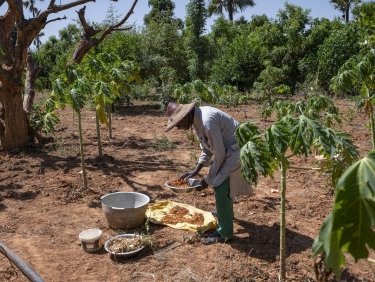In 2019 the United Nations published a report titled
«Global sustainable development report», which was the first stock-taking of the progress made. The study found that all the accomplishments of the past two decades were at risk of being undone by the numerous crises of our time, including climate change or the proliferation of armed conflict. Admittedly, the number of children and adolescents not attending school has fallen over recent years, many communicable diseases are on the wane, access to drinking water has improved, and women are much better represented in leadership positions. At the same time, however, ever more people are confronting food insecurity, the degradation of our environment continues at an alarming pace and there is glaring inequality in all regions of the world.
It is already becoming apparent today that the Covid-19 pandemic and its economic and social ramifications will very adversely impact most of the 17 SDGs. In the countries of the global South, vulnerable population groups such as the elderly, children, persons with disabilities, members of minorities, migrants and refugees are being hit considerably harder than the rest of society. Even high-income countries are recording their highest mortality rates among marginalised groups.

